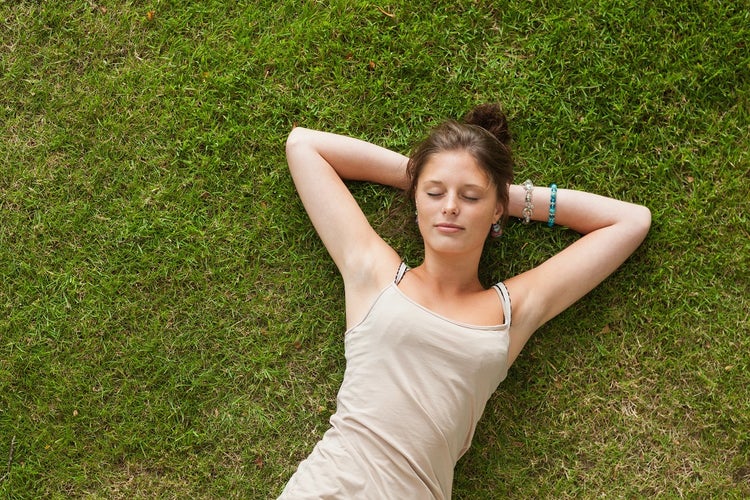Get Your Summer Sleep

There’s a simple mechanism driving your sleep pattern: your circadian rhythm determines your wake/sleep cycle and is dictated by your body clock. In turn, your body clock responds to how much light and dark there is in a 24-hour cycle.
So it’s no surprise that in summer your body clock will squeeze your sleep time because there is simply less darkness available. If you compare daylight hours in New York during the summer solstice on June 21 (the longest day of summer: 15 hours, 5 minutes and 38 seconds) to those during the winter solstice on December 22 (the shortest day: 9 hours, 15 minutes and 16 seconds) you’ll find that you have barely nine hours in summer in which to get your recommended 8 hours of sleep. In winter you have nearly 15.
We spoke to a global expert on sleep, Dr. David Hillman, a former president of the Wisconsin-based Society of Anaesthesia and Sleep Medicine and now chair of the Australian Sleep Health Foundation.
He said: “I think the tendency is to want to get up earlier in summer because it’s light outside. But that re-times the body clock and reduces the hours we sleep because the main key to your internal body clock is daylight and darkness.”
Dr. Hillman provided the following tips to help you get enough sleep in summer.
BRING BEDTIME FORWARD IF YOU GET UP EARLIER
If you’re getting up earlier in summer, bring forward the time you go to sleep. Subtract eight hours from the time you get up and go to bed at that time.
KEEP YOUR SLEEP REGULAR
Don’t keep changing your bedtime. If you can’t control when you fall asleep, then always wake up at the same time. Try and wake with natural light, which suppresses melatonin. Don’t hit the snooze button.
TRY HARDER TO BLOCK LIGHT
Block as much light as you can from your bedroom. If you don’t have drapes that keep light out completely, just use airline-style sleep masks. Professional athletes are known to be obsessive about creating a perfectly dark environment for sleeping in, so why not you?
KEEP COOL
If you don’t have air conditioning, consider a fan, or better, a ceiling fan. Ceiling fans are surprisingly effective.
MAKE THE BEDROOM WELCOMING
Get the best mattress you can afford and turn the bedroom into a haven you feel relaxed in. Many bedrooms are exposed to noise, outside light or disruptive partners (or children).
HAVE A WIND-DOWN ROUTINE
Indulge in things that relax rather than stimulate you, such as a hot bath or herbal drink (don’t surf the web or answer emails).
GET TECH OUT OF THE BEDROOM
Computers, tablets and phones emit blue light that suppresses the sleep hormone melatonin.
DON’T OBSESS ABOUT NOT SLEEPING
Obsessing about not sleeping when you can’t get to sleep makes it worse. Think of other, more pleasant things.
Dr. Hillman doesn’t agree that it’s OK to sleep less in summer because the nights are shorter. “I think that short sleep has got some very significant consequences. It’s now being compared to smoking, and while smoking is a dreadful public health issue, not sleeping is becoming a real problem.
“The end result is that whenever you are sleep-deprived, you become irritable and don’t respond to other demands as you should; you’re not being as efficient as you can be. You’re also a bit more dangerous on the road. As far as performance is concerned, hand-eye coordination, vigilance and your training mood are affected by sleep loss, so it’s a problem. Getting enough sleep should be a national health priority for Americans.”